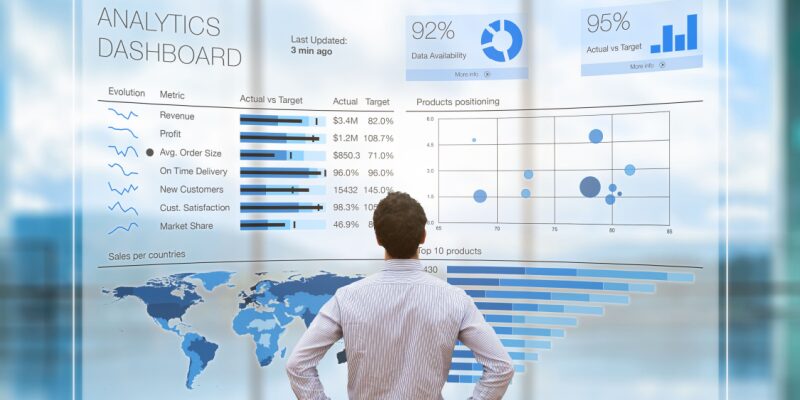In the ever-evolving landscape of business, adaptation is not just a strategy; it's a necessity. As we plunge into the digital era, the trajectory of Business Intelligence (BI) is veering towards a future defined by cutting-edge technologies and transformative insights. Here's a glimpse into the exciting future that awaits businesses willing to harness the full potential of BI.
- Integrating Artificial Intelligence and Machine Learning:
The integration of Artificial Intelligence (AI) and Machine Learning (ML) is set to redefine the possibilities of BI. These technologies bring a predictive dimension to analytics, enabling organizations to anticipate trends, identify potential challenges, and proactively adjust strategies. Imagine a BI system that not only provides historical data but also forecasts future scenarios, empowering businesses to stay ahead in a rapidly changing environment.
- Automated Decision-Making for Rapid Response:
As BI systems become more sophisticated, automated decision-making will play a pivotal role in enabling rapid responses to dynamic situations. Machine learning algorithms can analyze vast datasets in real-time, allowing organizations to automate routine decisions and allocate resources more efficiently. This not only saves time but also minimizes the margin for human error, fostering a more agile and responsive business environment.
- Enhanced Data Governance and Security:
With the increasing volume and sensitivity of data, the future of BI includes a heightened focus on data governance and security. As regulations tighten, BI systems will evolve to ensure compliance while maintaining the flexibility required for innovation. Expect advancements in encryption, blockchain integration, and robust authentication protocols to safeguard the integrity and confidentiality of critical business data.
- Augmented Analytics for Citizen Data Scientists:
The future of BI is inclusive, with augmented analytics empowering individuals beyond traditional data analysts. Citizen data scientists, equipped with user-friendly BI tools, will be able to derive meaningful insights without an in-depth technical background. This democratization of data analytics ensures that decision-makers at all levels can contribute to and benefit from the wealth of information BI systems provide.
- Holistic Ecosystems and Interconnected Platforms:
Future BI systems will extend beyond standalone tools, evolving into comprehensive ecosystems that seamlessly integrate with other business applications. Interconnected platforms will enable a holistic view of operations, breaking down data silos and providing a unified perspective for more informed decision-making. This integration will be essential for organizations seeking a 360-degree understanding of their business landscape.
The future of Business Intelligence is a realm where data becomes a strategic asset, not just a retrospective record. As we embrace AI, machine learning, and augmented analytics, BI will transcend its current capabilities, offering organizations the ability to not only navigate change but to thrive in the face of uncertainty. In this data-driven future, the businesses that leverage the full spectrum of BI innovations will be the ones shaping their destinies rather than reacting to them.






